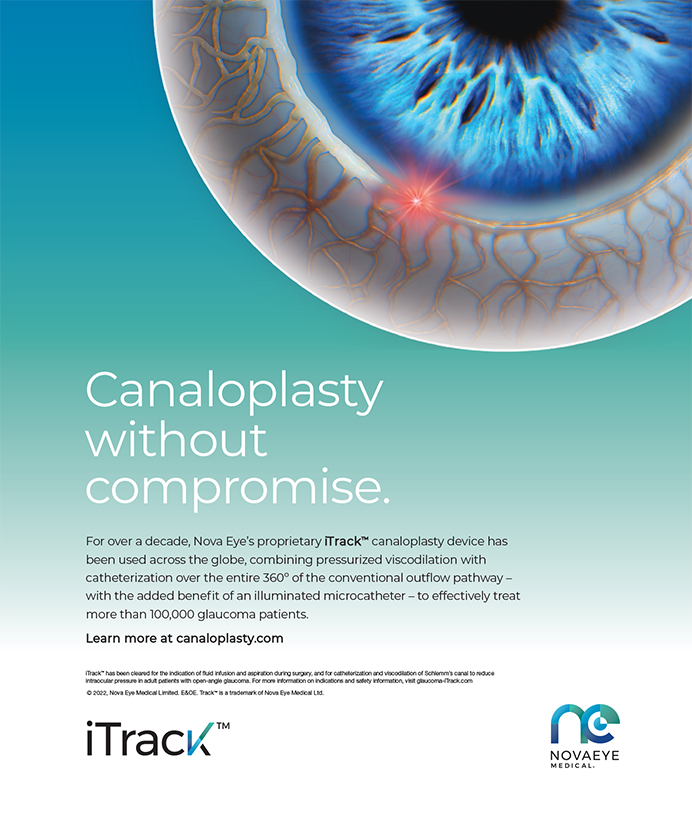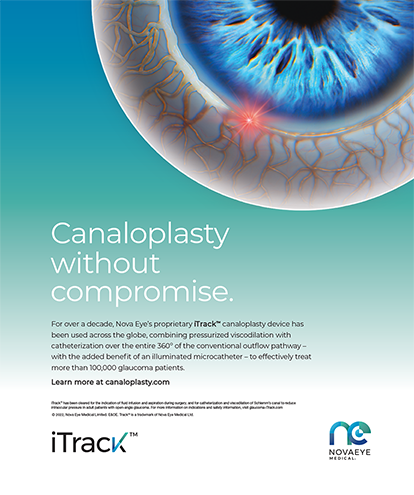You performed the first LASIK procedure in the US. What was going through your mind as you operated?
Due to my relative inexperience with the microkeratome, my initial reaction was fear. Nevertheless, I knew that Lucio Buratto, MD, had achieved good outcomes in Milan, Italy, so I had similar expectations for my patient. I do not think any of the investigators in the Summit Technology High Myopia Study group, which included Daniel S. Durrie, MD; Michael Gordon, MD; Stephen G. Slade, MD; George O. Waring, MD, and me, imagined that LASIK would become the dominant refractive procedure in the US. As with today's phakic IOLs, we all thought LASIK would probably be a niche procedure. Over time, we surgeons have encountered some unanticipated problems with this procedure. Ectasia is the most significant and least understood complication associated with LASIK. We do not know how many patients would develop this condition even if they did not have refractive surgery. We did not even think about the possibility of LASIK's causing dry eye until this problem began appearing. We compensated by playing "catch up" at first, but now we pretreat patients more aggressively with cyclosporine, punctal plugs, artificial tears, and nutritional supplements to minimize post-LASIK dry eye. What motivates you to participate in live cataract and refractive surgery symposia?
Performing live surgery can be very exciting. I like traveling to different places and getting to know other surgeons. These events also give me the opportunity to teach new surgical techniques as well as to learn from my colleagues. Finally, I enjoy the challenge of operating in such a dynamic environment. Live surgeries always have a certain element of "the thrill of victory, the agony of defeat." Setting up for the surgery can be nerve-wracking, but I usually feel better once I begin operating. What technologies do you anticipate will revolutionize refractive and cataract surgery in the near future?
I think improved designs of accommodating and multifocal IOLs will help this presbyopia-correcting option predominate in cataract surgery. Aspheric IOLs, both mono- and multifocal varieties, are another emerging technology. It will be interesting to see if ophthalmologists can use these lenses to customize the correction of patients' preexisting positive corneal spherical aberration. Aspheric multifocal IOLs make sense because the visual quality offered by multifocal lenses is compromised by the nature of their design. Adding aspheric elements to multifocal IOLs may maximize the benefit of these lenses. Further down the road, I think corneal inlays such as the AcuFocus and Bio Vision implants, both of which are scheduled to start FDA trials soon, offer great promise for correcting presbyopia. How did Hurricane Katrina affect your practice?
I think Hurricane Katrina was the largest natural disaster our country has ever known and the one that received the poorest response from every level of government. My largest personal loss was my employees. I lost two thirds of my staff, because they could not find housing in New Orleans and had to move to other cities. My facilities did not sustain direct damage from high winds or flooding, but several weeks without electrical power in high heat and humidity damaged three lasers. Fortunately, I did not lose many patients. They were also scattered by the storm but were generally within comfortable driving distance of my office. My wonderful patients, as well as the assistance of my new partner Jeffrey H. Singer, MD, and his staff, are helping me keep my practice going despite the continuing challenges. Why do you like to spend your free time in Aspen, Colorado?
People like to say, "I came to Aspen for the winter and stayed for the summer." As a great fan of the opera and all kinds of classical music, I find the 2-month Aspen Music Festival to be unrivaled. Between that event and the Food & Wine Classic, Aspen offers more enjoyable activities than I have time to attend. Most importantly, however, I am drawn to the sheer natural beauty of the mountains—the snow in winter, the green in summer, and the gold in fall. The lifestyle and joy of life cannot be matched anywhere.
|


